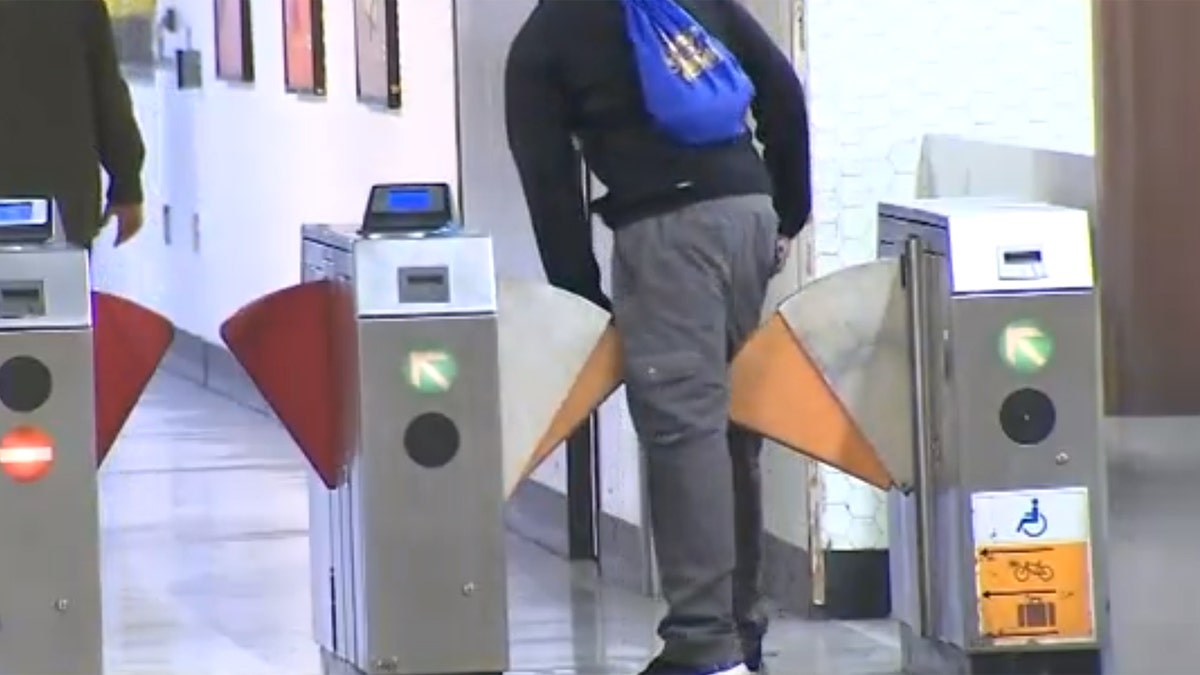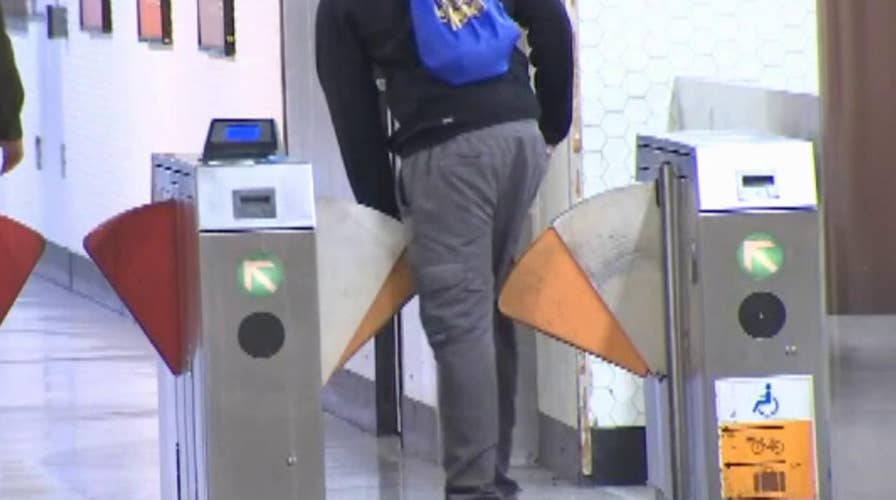San Francisco fare evaders cost BART $25 million
The Bay Area Rapid Transit system is considering replacing their fare gates to help curb the flow of fare evaders.
A widespread fare evasion problem costing the Bay Area Rapid Transit system tens of millions of dollars each year may end up requiring the agency to spend even more money to stem the tide of 22,000 people who jump the turnstiles each day.
The transit agency said Monday that fare evasion is costing as much as $25 million annually, prompting officials to study a more secure barrier, but one that maintains the open feel of stations and is not an eyesore.
"The most important thing we want people to know is that we don't have the funds to replace fare gates," BART spokesperson Alicia Trost told KTVU. "It's an extremely expensive project. We have 600 fare gates, so we're thinking it's going to cost between $150 to $200 million."
In one half-hour block at San Francisco's Powell Street Station, KTVU cameras captured as many as 20 people slipping by or jumping the barriers. Some of the fare gates pried open by people remained open for at least six seconds, leaving plenty of time for additional commuters to slip through.

Cameras from KTVU captured as many as 20 people slipping or jumping through the barriers in 30 mins. (KTVU)
"I mean were all trying to get the same place and we all have to pay our fair share," Sheri Wajschal, of Berkeley, said.
One woman was even seen using her two small children to pry the gates open in order to allow her to get a stroller in. Riders who paid their fares were visibly upset.
"It's unfair to the customers that pay," Alicia Spears of Oakland said. "You know everyone needs to pay when they get on BART."
Since the start of the year, BART has caught close to 1,300 fare evaders and issued warnings. Now, the system is going to issue fines at $75 for a first-time offense to help combat the nearly 22,000 people that slip through each day.
BART CRIME SPIKE ACROSS SAN FRANCISCO BAY AREA SPURS VOLUNTEERS TO ESCORT RIDERS TO CARS
Besides cutting down on missed money due to fare evasion, officials with the transit system are also hoping they can fend off other problems such crime, open-air drug use, and homeless people sleeping in trains and stations.

BART says fare evasion is costing as much as $25 million annually. (KTVU)
"They’re tied together," BART General Manager Grace Crunican told the San Francisco Chronicle.
3 PEOPLE DEAD IN UNRELATED ATTACKS ON BAY AREA RAPID TRANSIT STATIONS IN 5 DAYS
One passenger suggested to KTVU that BART have a uniformed worker or another person of authority at the gates, but Trost said that also comes with a price.
"Our collective bargaining agreement is clear: only BART security can provide security for the BART system and we can't bring in hired help," Trost said.
The transit agency added that there is already an existing officer shortfall, and that all viable options will be presented at a board meeting in spring 2019.
BART has been under heavy scrutiny after a violent summer, when three people were killed in unrelated attacks in the span of just one week. In one of the attacks, 18-year-old Nia Wilson was stabbed to death while her 26-year-old sister, Lahtifa Wilson, was also injured.
Besides a spike in violent crime, conductors have also taken to the taken to the trains' PA systems to warn riders about hypodermic needles being left on seats by transient drug users.
Riders are just hoping BART officials will do something to tackle a problem that isn't going away.
"They need to do something," Meryl Glass of San Francisco told KTVU as a woman pried open a fare gate. "Not okay, not okay."






















